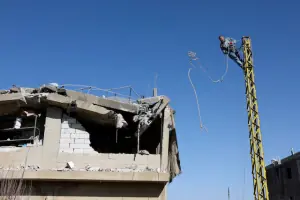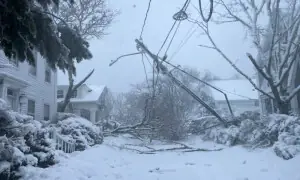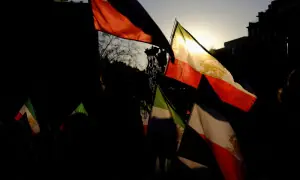Record temperatures scorch Europe, as wildfires rage across south
3 min readLONDON/MADRID: Britain was forecast to see temperatures hit 40C (104F) for the first time on Tuesday after logging its warmest night on record, while wildfires raged across parched countryside in France, Spain and elsewhere.
As a heatwave that settled over southern Europe last week edged northwards, southern and western Germany and Belgium were also braced for potentially record-breaking temperatures, with many scientists pointing the finger of blame at climate change.
While the mercury dipped back towards more normal summer levels in Spain and Portugal, firefighters in both countries were still battling multiple blazes.
Britain has been put on a state of “national emergency” alert as temperatures looked set to surpass the previous record of 38.7C recorded in 2019, with the extreme heat disrupting travel as some trains were forced to stop running and flights were cancelled.
“We’ve seen a considerable amount of travel disruption,” Transport Minister Grant Shapps told the BBC.
“We’re probably going to see the hottest day ever in the UK recorded today, and infrastructure, much of which was built from the Victorian times, just wasn’t built to withstand this type of temperature.”
A study published by climate scientists in June in the journal “Environmental Research: Climate” concluded it was highly probable that climate change was making heatwaves worse.
With human-caused climate change triggering droughts, the number of extreme wildfires is expected to increase 30% within the next 28 years, according to a February 2022 U.N. report.
Flames and smoke
More than 30 wildfires continued to ravage parts of Spain, with authorities paying special attention to four blazes in Castile and Leon and Galicia.
In Losacio, in northwestern Zamora province, where two people have died and three people were critically injured, more than 6,000 people in 32 villages have been evacuated.
Dramatic TV footage showed flames and plumes of smoke billowing into the night sky near the Zamora town of Tabara.
On Monday, a man trying to protect his town from wildfire had a close brush with death when the blaze engulfed his digger, forcing him to run for his life while patting out flames on his clothes.
In Galicia, more than 1,500 people have been evacuated from the path of four fires, with several buildings damaged.
So far this year 70,000 hectares (173,000 acres) have been burned in the country, around twice the average of the last decade, official data showed before the heatwave.
In neighbouring Portugal, around 50 municipalities, mainly in central and northern regions, still faced “maximum risk” of wildfires, according to the IPMA weather institute.
More than 1,000 firefighters were battling five main wildfires, the biggest of which started in the northern municipality of Murça and spread to two nearby municipalities.
Hundreds of people have been evacuated from villages and an elderly couple was found dead on Monday inside a burned-out car. read more
Major fires also continued to burn in the Gironde area of southwestern France, where 34,000 people have been evacuated.
Some 2,000 firefighters supported by water-bombing aircraft were fighting the blazes, which started a week ago and have burned around 19,300 hectares (47,700 acres).
In Greece, firefighters had tackled 73 fires within 24 hours, the fire brigade said on Monday. The civil protection authority has warned of a very high risk of fires across the country on Tuesday.
For the latest news, follow us on Twitter @Aaj_Urdu. We are also on Facebook, Instagram and YouTube.



























Comments are closed on this story.